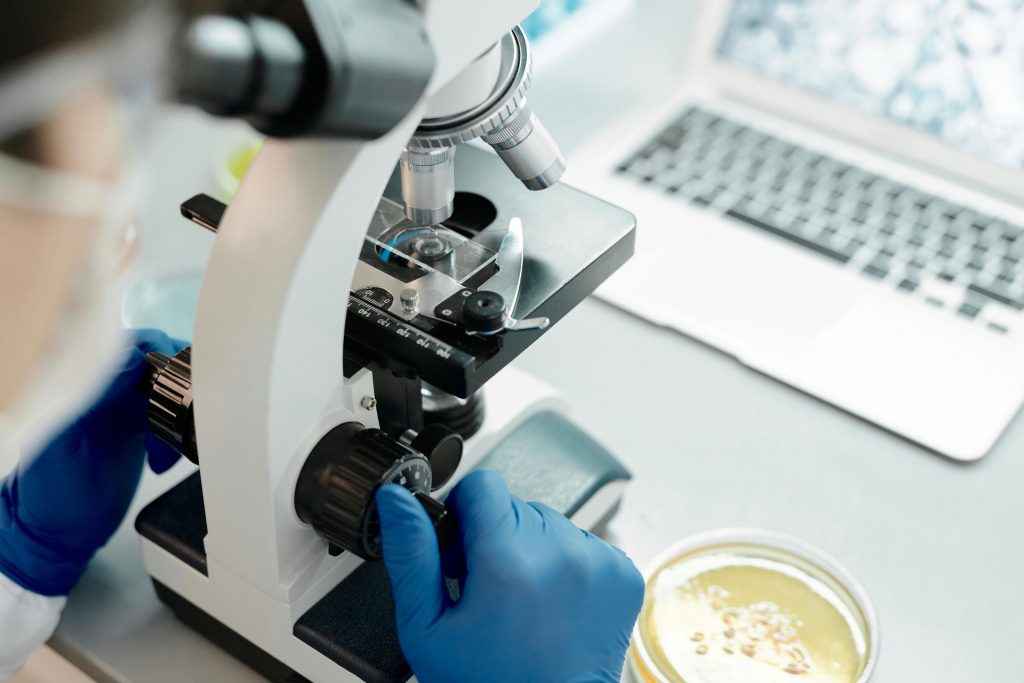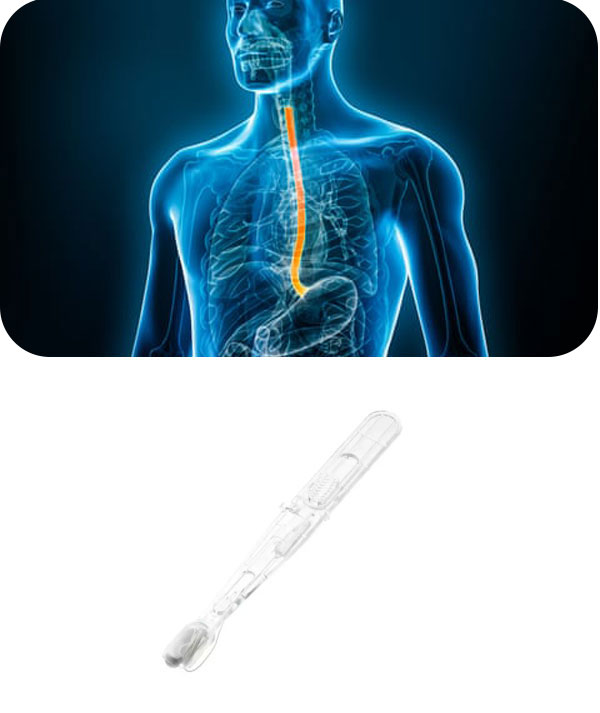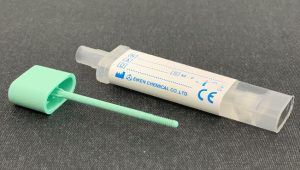
- The patient swallows the capsule.
- In the stomach, the capsule dissolves, releasing the sponge.
- The sponge expands and is then gently pulled back up the esophagus, collecting cells from the lining.
- The collected cells are analysed in a laboratory.
Watch this short video for more information.

- Liver elasticity scanning which, like fibroscanning can assess the liver specifically for signs of scarring (fibrosis and cirrhosis). This is often offered as part of our liver MOT.
- Ultrasound of small bowel – for detecting inflammatory bowel diseases such as Crohn’s disease
- Contrast enhanced ultrasound scanning for further enhancement of traditional ultrasound.



- To find inherited gene mutations that increase colorectal cancer risk
- To help you and your healthcare provider make decisions about:
- Cancer screening and prevention
- Treatment options
- Family testing
What genes are tested at The Capsule Clinic and why?
These genes are associated with hereditary colorectal cancer and polyposis syndromes:
Lynch Syndrome (also known as HNPCC):
- MLH1, MSH2, MSH6, PMS2, EPCAM
- Mutations in these genes increase risk for colorectal, endometrial, and other cancers.
- EPCAM deletions can silence the MSH2 gene.
Familial Adenomatous Polyposis (FAP):
- APC
- Causes hundreds to thousands of polyps in the colon and rectum, usually developing in teenage years.
Attenuated FAP and Other Polyposis Conditions:
- MUTYH (autosomal recessive condition)
- NTHL1 (autosomal recessive polyposis)
- POLE, POLD1 (polymerase proofreading-associated polyposis)
- AXIN2 (oligodontia-colorectal cancer syndrome)
- MBD4 (rare, high polyp and cancer risk)
- RNF43 (serrated polyposis risk)
Hamartomatous Polyposis Syndromes:
- BMPR1A, SMAD4 (Juvenile Polyposis Syndrome)
- PTEN (PTEN Hamartoma Tumor Syndrome/Cowden syndrome)
- STK11 (Peutz-Jeghers syndrome)
- GREM1 (Hereditary Mixed Polyposis Syndrome; duplications seen in Ashkenazi Jewish populations)
Other Cancer risk genes with colorectal involvement:
- CDH1 (mainly linked to stomach and breast cancer; some colorectal risk)
- CHEK2 (moderate risk gene for multiple cancers, including colorectal)
- TP53 (Li-Fraumeni syndrome—very high lifetime cancer risk)
What do the results mean?
- Positive: A mutation was found that increases your risk of cancer.
- Your provider will recommend a personalised cancer screening and prevention plan.
- Family members may need testing.
- Negative: No mutation found in the tested genes.
- Does not rule out cancer risk completely—especially if family history is strong.
- Follow-up depends on personal/family history.
- Variant of Uncertain Significance (VUS):
- A gene change was found, but we don’t yet know if it affects your cancer risk.
- These results may be reclassified as more is learned.
What happens next?
- If a mutation is found, you may:
- Start colonoscopies earlier and more often
- Consider preventive surgery in some cases
- Share results with family so they can get tested
- A genetic counselor or healthcare provider will help you understand your results and next steps.

- Fructose intolerance (Fructase deficiency)
- SIBO (Small intestinal bacterial overgrowth)
- Lactose intolerance (Lactase deficiency)

